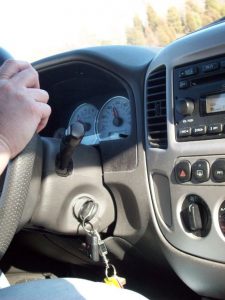If one suffers an injury in a Florida car accident caused by another’s negligence, there may be an opportunity to step outside the state’s “no-fault” system (which allows for up to $10,000 in compensation through PIP benefits) and take action against the other driver. However, in order to ensure the damages are covered, one must prove they are causally related to the crash. 
In many crash cases, this is a fairly straightforward process, particularly if the injured party immediately sought medical attention. However, causation can be tougher to prove when one waits to obtain medical care or when injuries are latent, not becoming fully apparent until days or weeks later. It may also be an issue when not all alleged injuries are physical. This is not to say one cannot collect compensation for emotional or mental damages, but they can be harder to prove.
Recently, the Montana Supreme Court weighed this very issue, reversing a summary judgment in favor of plaintiff (injured party), finding there were questions of material fact as to whether the medical bills and lost wages she claimed as damages were causally related to the crash.
According to court records, the crash in question occurred in 2014 when the allegedly at-fault driver rear-ended her vehicle. The driver in the rear was cited for careless driving, as the responding officer deemed him responsible.
Plaintiff did not immediately seek medical treatment, but she did see a physician later that day. She was diagnosed with right shoulder strain and whiplash. Following that diagnosis, plaintiff met with numerous health care providers for treatment of both physical and psychiatric injuries. These professionals included a chiropractor, neurologist, physical therapist, counselor and masseuse.
Soon after the car accident, plaintiff hired a personal injury lawyer, who demanded advance payment of medical cost from at-fault driver’s auto insurer. The insurer concluded its insured was responsible for the crash and did make several advance payments to her for lost wages and medical expenses – totaling more than $53,000. Several months later, insurer sought medical records and asked plaintiff to undergo an independent medical examination to ascertain whether ongoing medical expenses were related to the collision. Plaintiff refused both requests.
Insurer asked one of its contracting physicians to review her medical records from immediately after the crash. Based on this, the insurer announced it would no longer cover plaintiff’s medical bills or lost wages, determining they were no longer causally related to the crash.
That’s when plaintiff filed a personal injury lawsuit, seeking payment of ongoing expenses. Plaintiff was compelled to undergo several independent medical exams, and several expert witnesses were called to testify. An expert for the defense argued her injuries were almost entirely psychological, and there was no physiological basis for her reports of ongoing pain. Plaintiff’s experts flatly disagreed.
Plaintiff sought summary judgment on the issue of medical causation and damages (the only matters at issue in this case), which the trial court granted. The court ruled the opinions of the doctors did not establish an issue of material fact as to medical causation and damages and the doctors lacked foundation. The state supreme court reversed and remanded for further proceedings. The state high court ruled the lower court was wrong to disregard the affidavits and opinions of the testifying physicians, and that those opinions did create disputed issues of material fact.
Our Fort Lauderdale car accident attorneys recognize this case underscores that car accident litigation is often about so much more than just who was at-fault. Here, the question of fault was undisputed, but establishing causation and damages was just as important.
Call Fort Lauderdale Injury Attorney Richard Ansara at (954) 761-4011. Serving Broward, Miami-Dade and Palm Beach counties.
Additional Resources:
Teeter v. Mid-Century Insurance Co., Nov. 28, 2017, Montana Supreme Court
More Blog Entries:
Self-Driving Trucks Could Slash Florida Truck Accidents, Nov. 20, 2017, Fort Lauderdale Car Accident Attorney Blog
 Broward Injury Lawyer Blog
Broward Injury Lawyer Blog



